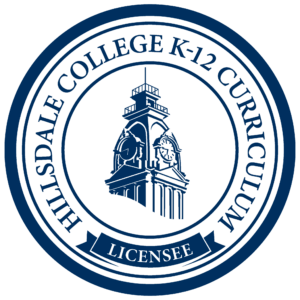

Philosophy
“The difference between the old and new education will be an important one. Where the old initiated, the new merely ‘conditions’. The old dealt with its pupils as grown birds deal with young birds when they teach them to fly; the new deals with them more as the poultry-keeper deals with young birds—making them thus or thus for the purposes of which the birds know nothing. In a word, the old was a kind of propagation—men transmitting manhood to men; the new is merely propaganda.”
C.S. Lewis, The Abolition of Man

Transmitting Manhood to Men
C.S Lewis wrote in The Abolition of Man that “new” trends in education make “Men without Chests,” cynical people whose love for the Good, True, and Beautiful has never been cultivated. “It is not excess of thought,” he wrote, “but defect of fertile and generous emotion that marks them out. Their heads are no bigger than ordinary: it is the atrophy of the chest beneath that makes them so.”
St. Dunstan’s Academy provides boys the opposite kind of education, one designed to make Men with Chests. The school’s program can be likened to spiritual bench-pressing: a targeted exercise to build up proper affections.
Education that shapes the affections.
Education is primarily about the formation of our loves and desires. Those loves are shaped by habits and routines even more than by mere information. Education is about the heart, not only the head, and a good school targets what Scripture calls our kardia—the seat of our affections.
A heart fully devoted to God begins with an imagination ignited to sense His presence everywhere. The imagination, in turn, is shaped by our attention—what we look at, listen to, and participate in— and therefore the stories, images, and activities with which we surround ourselves must be the kind that will form a proper imagination.
Such an intentionally cultivated environment, joined with inspiring studies in the Classical tradition, paints a vivid picture of reality for the student. At St. Dunstan’s, we will bring our students back to an awareness of this reality throughout the entirety of each day, offering a coherent and beautiful picture of what it means to live faithfully in the Kingdom of God.
A Haven and a Training Ground
As students encounter reality with a proper imagination and keen attentiveness, their affections are turned towards God, and they will be more able to direct their will in virtue. Contemporary American culture, with its emphasis on the expressive, the immediate, and the sensational, undermines the kind of coherent, thoroughly Christian imagination a quality education should impart. We need to provide a different culture for our boys to grow into their manhood as God intends. We need to look to the culture handed down by the Church.
Though academics are quite formative to a young man’s mind, the activities he pursues outside of the academic day shape him equally, if not more. This means his entire environment needs to be full of goodness, truth, and beauty, if he is going to grow into a godly man, and be prepared to “fight the good fight of faith” as the Scriptures call him to.
St. Dunstan’s Academy is designed to align the entire day around capturing boys’ imaginations, and showing them the wonder and reality of God’s created order. Making the church the center of the school’s gravity will keep St. Dunstan’s from drifting away from its mission to raise up Christian men for faithful work in the Kingdom of God. Providing real challenges for the boys to face down will allow the school to be not only a temporary haven from the destructive elements of contemporary society, but also a training ground for the boys to grow in the habits of godly men, so that they might be prepared to live out their vocations courageously.
Encounters with Reality
Luigi Giussani’s succinct definition of education is perfect: “education is an introduction to reality as a whole.” No part of the “deep down things” should be hidden from a young man in his formative years.
St. Dunstan’s Academy opens the eyes of our students through encounters with reality in four core disciplines: worship, work, wisdom, and wonder.
Good Work
According to the Medieval formula, “There is nothing in the intellect which did not begin in the senses.” Reality is first encountered through attention to the physical world. Daily work in the farm, forge, kitchen, and woodshop will awaken students to the goodness of God’s creation and the objective reality their habits and choice must align with.
Regular Worship
Reality has a spiritual dimension that undergirds and corresponds with the physical world, and we ignore this reality at our peril. Our spirits need training in prayer, the study of Holy Scripture, and a life patterned around corporate worship in order to perceive the things of God, which are the realest things in existence. The school day at St. Dunstan’s will begin with morning prayer after morning chores are completed, and end with evening prayer before the community goes to dinner. Holy Communion on Sundays is the pinnacle of the week’s services, and will be celebrated with special festivity and splendor. The daily practice of common prayer and corporate worship will root and ground the students and faculty alike in the knowledge and love of God, “the love that moves the sun and the stars.”
A Posture of Wonder
“Poetry begins in delight and ends in wonder.” This teaching of John Senior’s matches Aristotle’s insight that “All wisdom begins in wonder.”
At St. Dunstan’s, students will be invited to experience the created order with their senses and imaginations fully engaged. By beginning their journey towards wisdom in the poetic mode– soaking in the beauty, truth, and goodness of the stars, harrowing adventures, fortifying songs, and enthralling stories– students will be invited into a life of joy.
The Path of Wisdom
Once their imaginations have been engaged, students will have the ability to study the good and great works of the Western past. As they learn Greek and Latin, read good poetry, discipline and delight themselves with mathematical truth, and delve into the complexity of natural sciences, they will grow in their capacity to make good choices in a complex world, and become wise through good teaching and rich experiences. Their studies will be drawn together by The Queen of the Sciences, Theology, and her handmaiden, philosophy.
Interested in reading more? Suggested further reading available here.


